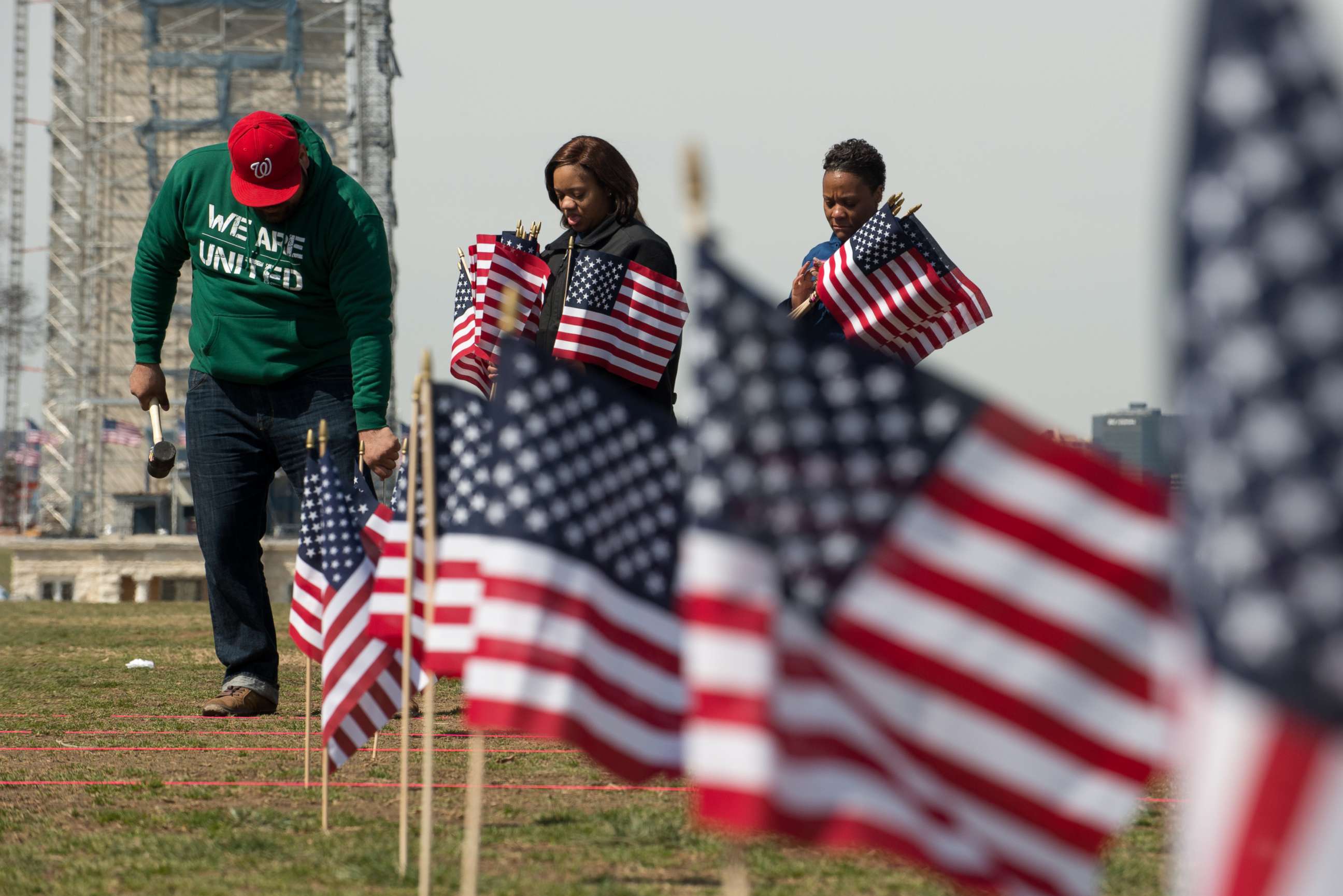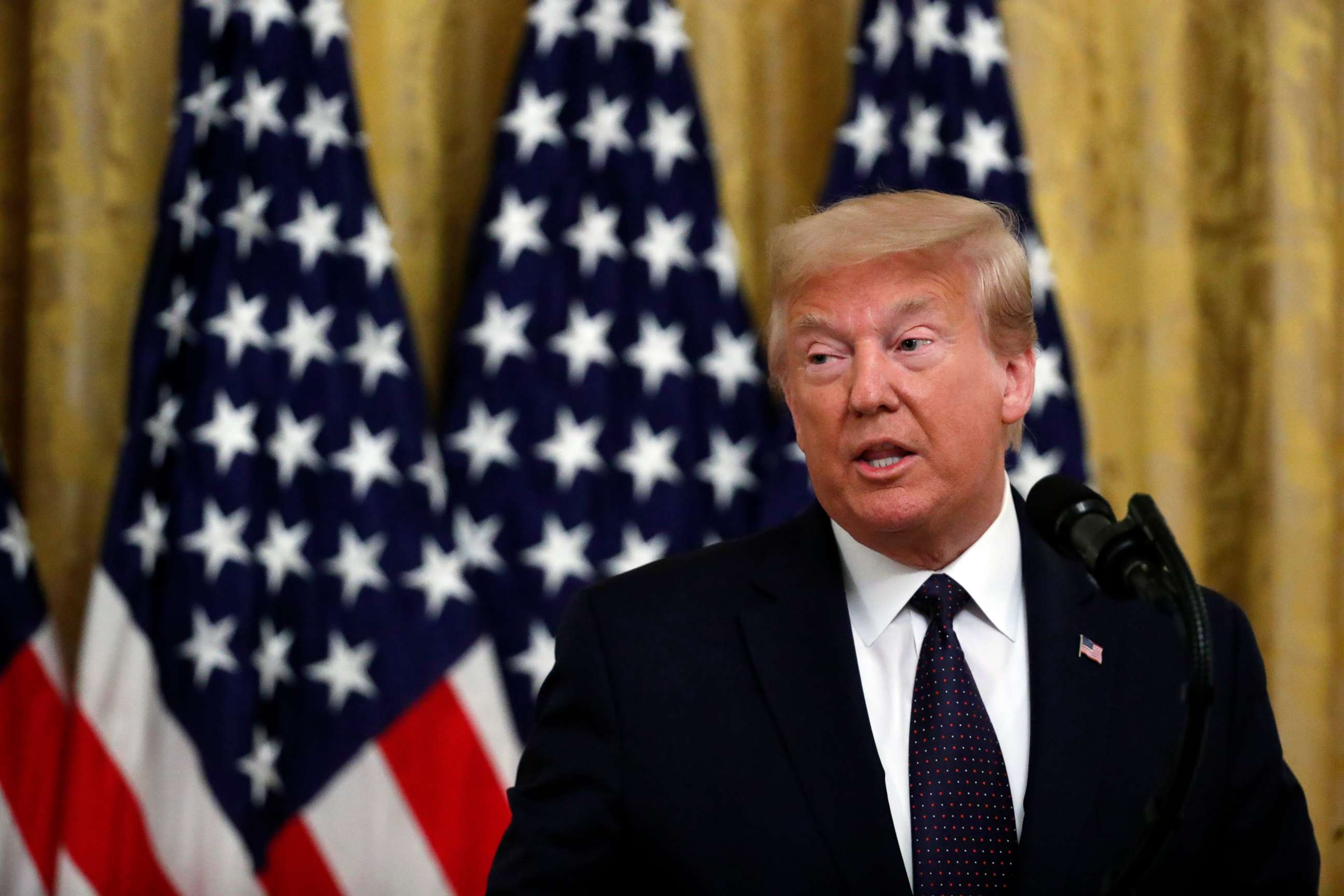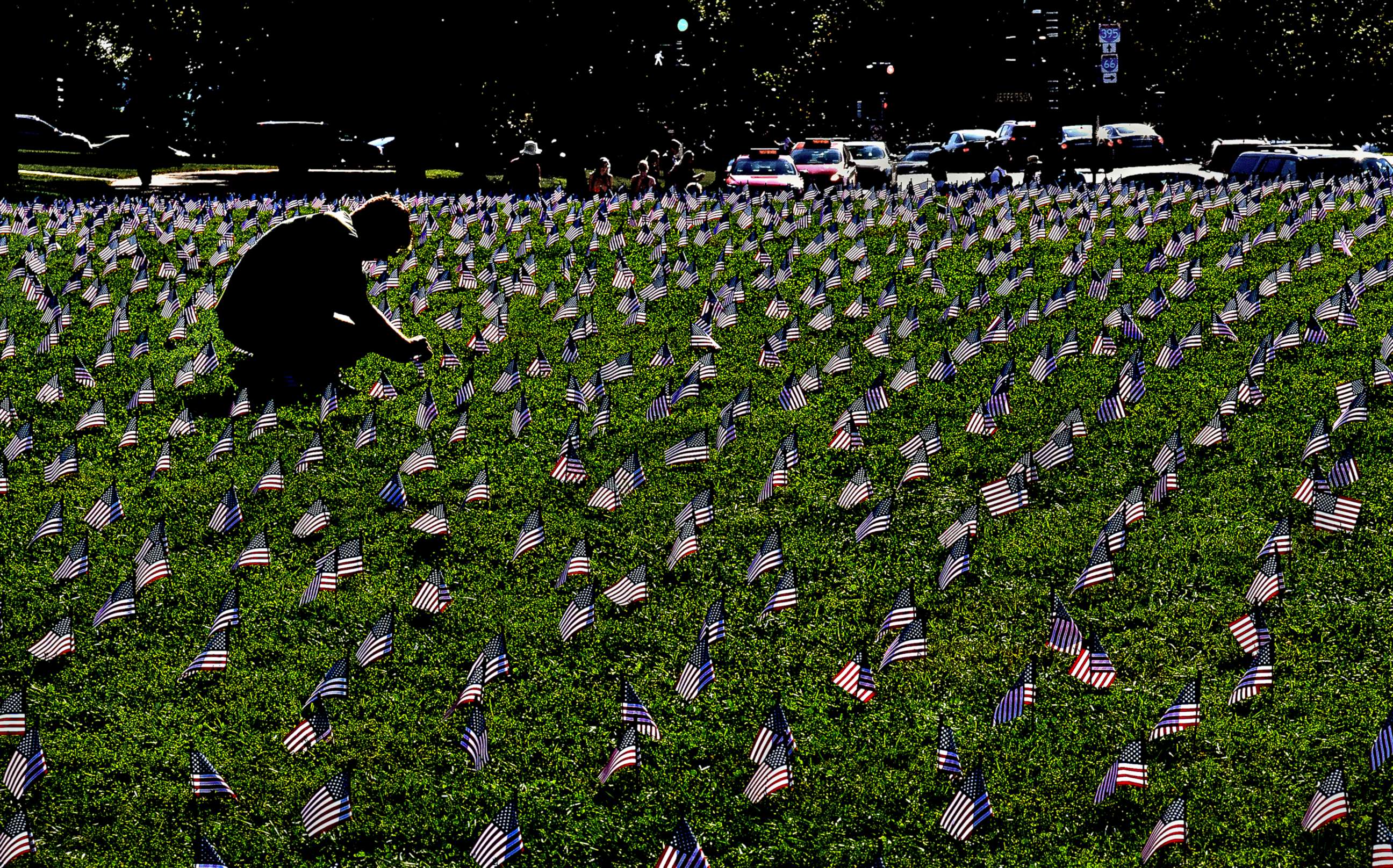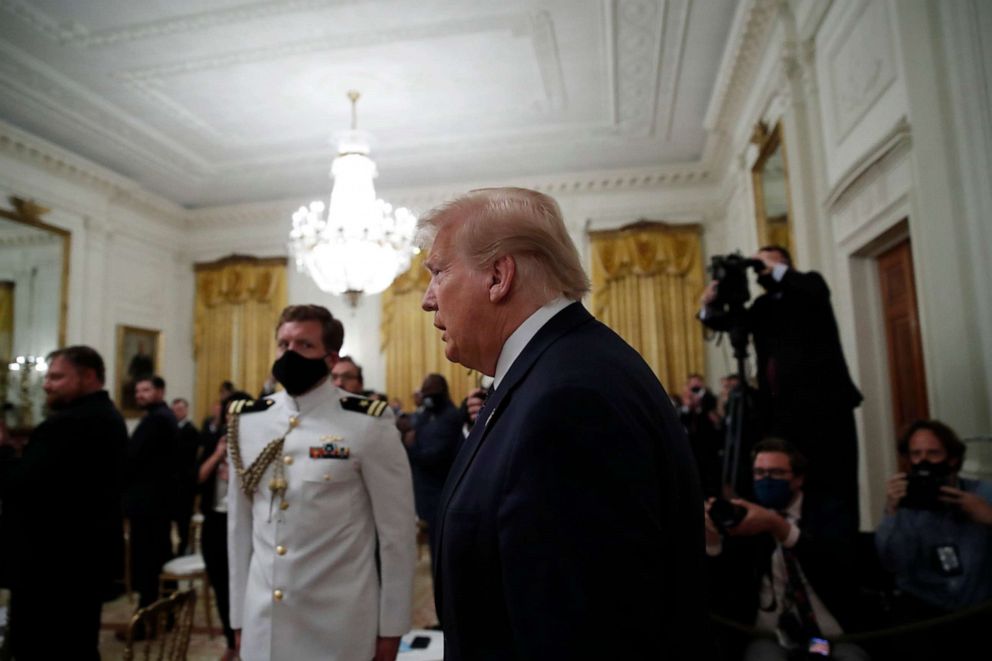Trump rolls out national plan to address veteran suicides
It was part of a three-year effort to address veteran suicides.
President Donald Trump and his administration on Wednesday rolled out the general contours of a plan to prevent military veterans and other Americans from dying by suicide, including increasing public awareness, improving training in workplaces and revamping how data on suicides is collected and used.
A federal task force set up last year by a presidential executive order spent at least a year developing a "roadmap" for how to curb the 6,000 deaths by suicide among veterans each year -- a rate that is, according to the U.S. Department of Veterans Affairs, 1.5 times that of the general population.
Among 10 recommendations the 68-page report makes are creating a national public health campaign, prioritizing suicide surveillance and research, promoting changes to the way research on suicides is conducted and developing partnerships inside and outside government, according to a copy of the plan obtained by ABC News.

Other broad goals include encouraging employers and academic institutions to provide mental health and wellness practices, increasing suicide-prevention training in different professions, identifying and promoting effective community-based efforts to prevent suicides and elevating the issue of how to prevent people from using various methods -- like guns, poison or bridges -- to take their lives, according to the document. The task force also recommended streamlining access to suicide prevention programs and funding -- at the federal level -- resources to implement successful suicide prevention programs.
The plan would more broadly target suicides outside the veteran community, too. Suicides in the United States increased by 35% between 1999 and 2018, with around 48,344 deaths in 2019, according to the administration's plan, citing the National Center for Health Statistics at the Centers for Disease Control and Prevention.

"This historic campaign will mobilize every sector of American society to encourage heroes in need, empower them with the best prevention practices and help every veteran thrive in their lives after service," Trump said at an event at the White House Wednesday. "They come home from these active battlefields and active places and, all of a sudden, they’re left sometimes alone. And they have a hard time with it. They fought our battles overseas and now, we must join them in winning this new battle at home."
"There’s no single solution to this issue," he added. "Every resource must be brought to bear."
The Democratic chairman of the House Committee of Veterans' Affairs, Rep. Mark Takano of California, said the report failed to gather enough input from veteran services organizations and lawmakers who would implement policy related to the topic.

"Tepid calls for more research, interagency coordination, and meek public education campaigns won’t do enough to end this crisis -- we have much more substantial work to do to prevent veteran suicide and ultimately help save veterans’ lives," Takano said in a statement.
The task force was due to deliver its roadmap several months ago but was delayed due to the outbreak of the novel coronavirus.
Amid concerns that the virus' spread and the battered economy may be causing an increased number of suicides, a senior administration official said it was "fortuitous" that the task force had already been working on this issue.
A vice president of the Tragedy Assistance Program for Survivors (TAPS), a group that supports those who have lost loved ones in the military to suicide, told ABC News the roadmap represented "a good starting point."
"A public health approach takes into consideration that no one treatment or support will fit everyone, so we must train and inform all touch points of one's life," Kim Ruocco, the vice president of suicide prevention and "postvention" for TAPS, said.
Ruocco also said more research on alternative therapies and treatments could prove helpful to veterans.
Trump signed an executive order in March 2019 that created the three-year initiative called the "President's Roadmap to Empower Veterans and End a National Tragedy of Suicide," or PREVENTS. It created the interagency task force that authored the roadmap, led by Veterans Affairs Secretary Robert Wilkie.

The group now plans to turn its attention to implementing the plan unveiled Wednesday, including coming up with a national strategy on suicide-related research and examining what legislative solutions could look like, according to a senior administration official.
If you are in crisis, please call the National Suicide Prevention Lifeline at 1-800-273-TALK (8255) or contact the Crisis Text Line by texting TALK to 741-741.
ABC News' Alexis Carrington, M.D., contributed reporting.




